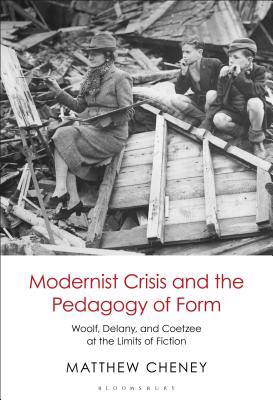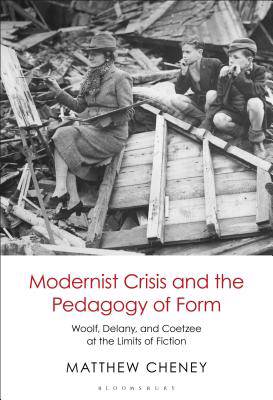
Bedankt voor het vertrouwen het afgelopen jaar! Om jou te bedanken bieden we GRATIS verzending (in België) aan op alles gedurende de hele maand januari.
- Afhalen na 1 uur in een winkel met voorraad
- In januari gratis thuislevering in België
- Ruim aanbod met 7 miljoen producten
Bedankt voor het vertrouwen het afgelopen jaar! Om jou te bedanken bieden we GRATIS verzending (in België) aan op alles gedurende de hele maand januari.
- Afhalen na 1 uur in een winkel met voorraad
- In januari gratis thuislevering in België
- Ruim aanbod met 7 miljoen producten
Zoeken
Modernist Crisis and the Pedagogy of Form
Woolf, Delany, and Coetzee at the Limits of Fiction
Matthew Cheney
Hardcover | Engels
€ 220,45
+ 440 punten
Omschrijving
What is the role of the author in times of crisis? Modernist Crisis and the Pedagogy of Form examines how Virginia Woolf, Samuel R. Delany, and J. M. Coetzee developed literary strategies in common to cope with crisis periods they were anticipating, living through, or looking back on. Matthew Cheney outlines how the three writers shaped their art to create an author/audience relationship congruent with the goals of critical pedagogy espoused by such thinkers as Paulo Freire and bell hooks.
Seeking to stimulate ethical thought, Woolf, Delany, and Coetzee required their readers to be active interpreters of their texts' forms, contents, and contexts. By pushing against fiction's fictionality, these writers of very different backgrounds, geographies, privileges, situations, tastes, and styles discovered complex ways to address the world wars in England, the AIDS crisis in New York, and apartheid in South Africa, going so far as to question the value of fiction itself.
Seeking to stimulate ethical thought, Woolf, Delany, and Coetzee required their readers to be active interpreters of their texts' forms, contents, and contexts. By pushing against fiction's fictionality, these writers of very different backgrounds, geographies, privileges, situations, tastes, and styles discovered complex ways to address the world wars in England, the AIDS crisis in New York, and apartheid in South Africa, going so far as to question the value of fiction itself.
Specificaties
Betrokkenen
- Auteur(s):
- Uitgeverij:
Inhoud
- Aantal bladzijden:
- 216
- Taal:
- Engels
Eigenschappen
- Productcode (EAN):
- 9781501355912
- Verschijningsdatum:
- 23/01/2020
- Uitvoering:
- Hardcover
- Formaat:
- Genaaid
- Afmetingen:
- 152 mm x 229 mm
- Gewicht:
- 458 g

Alleen bij Standaard Boekhandel
+ 440 punten op je klantenkaart van Standaard Boekhandel
Beoordelingen
We publiceren alleen reviews die voldoen aan de voorwaarden voor reviews. Bekijk onze voorwaarden voor reviews.









